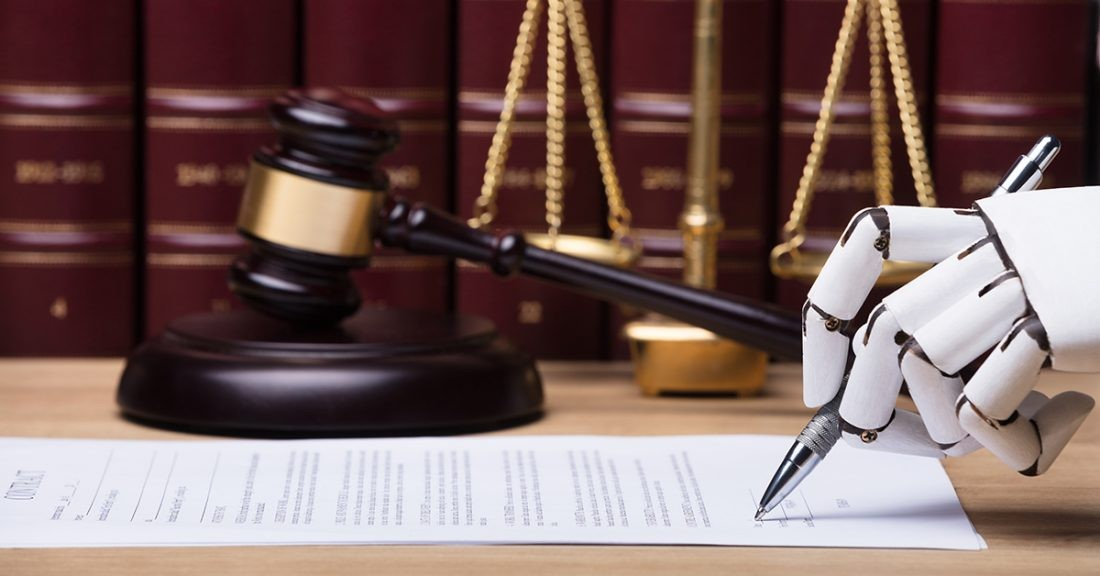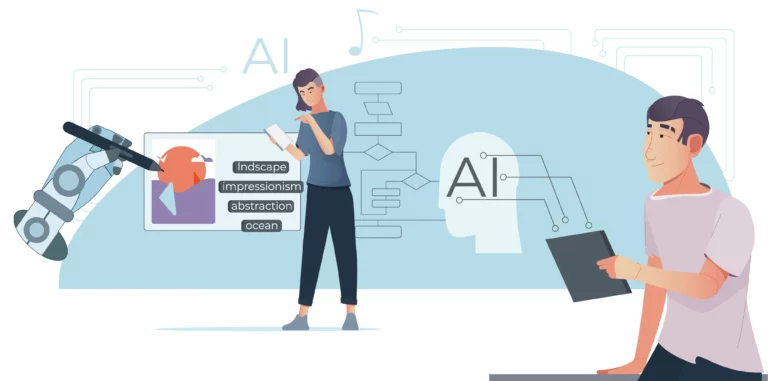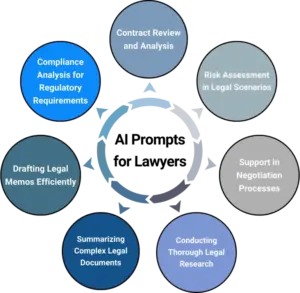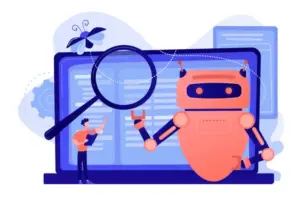The legal industry has witnessed a significant transformation with the advent of Artificial Intelligence (AI) technology. AI is revolutionizing contract drafting, making it quicker, more accurate, and more efficient than ever before. In this blog post, we will explore the concept of AI in legal documentation and how it is changing the future of contract generation. We will discuss the role of AI in streamlining drafting and exploring its benefits such as increased efficiency, improved accuracy, and reduced error risk.
As with any new technology, there are challenges to overcome such as addressing data security concerns and ethical considerations. Join us as we discuss these issues in depth and provide insights into how AI is changing the face of contract drafting.
Understanding AI in Contract Drafting
AI-powered contract drafting is revolutionizing the legal documentation process. It involves the use of algorithms and large language models. Tools like GPT-4 and ChatGPT automate the drafting process, enabling faster and more accurate contract creation. They also assist in tracking and managing key terms in contracts.
AI in legal documentation leverages artificial intelligence to automate drafting tasks. Utilizing machine learning algorithms, AI-powered drafting software extracts relevant clauses from precedent contracts. By enhancing efficiency and accuracy while reducing manual review, AI revolutionizes drafting, ensuring consistency in legal documentation.
AI in drafting has evolved alongside advancements in natural language processing (NLP). Microsoft Word, for example, now integrates AI capabilities. AI-powered contract generators offer template-based drafting with customization options. Over time, AI in drafting has become more accessible and user-friendly. Law firms are adopting AI to enhance due diligence and streamline contract review.
Role of AI in Streamlining Contract Drafting

AI plays a crucial role in streamlining drafting. It standardizes the process while allowing customization for specific needs. By automating repetitive tasks, AI contract drafting tools speed up the process. AI-powered contract management systems ensure compliance and minimize errors, reducing reliance on manual drafting and review. This streamlines the workflow, enabling legal professionals to focus on strategic tasks.
1. Standardization and Customization of Contracts
AI enables the standardization of contract clauses and offers customizable templates for specific industries. AI algorithms ensure compliance with governing law requirements, creating consistent and enforceable contracts. With AI, contract clauses can be efficiently modified and adapted, revolutionizing the way contracts are drafted.
2. Speeding Up the Contract Drafting Process
AI contract drafting tools accelerate the process by automating time-consuming tasks and analyzing data to generate accurate drafts. They streamline review cycles, reduce manual data entry, and enhance collaboration during real-time editing. With AI-powered software, the drafting process becomes faster, more efficient, and error-free.
3. Improved Accuracy and Reduced Error Risk
AI algorithms can analyze legal language, identify errors, and suggest improvements, reducing error risks by flagging ambiguous clauses before the final draft. With its ability to search through vast legal information, AI increases accuracy in contract drafting. It also automates repetitive tasks, saving lawyers time and offering alternative drafting options for better legal outcomes.
4. Improved Collaboration and Transparency
AI streamlines drafting and review processes, improving collaboration between legal teams. Real-time tracking and transparency offered by AI-powered contract platforms reduce errors and delays. Contract analytics tools powered by AI identify potential issues and suggest solutions for better outcomes. AI standardizes language and formatting for consistency across documents, freeing up legal professionals for higher-level analysis and strategy.
5. Assistance with Contract Negotiation
AI-powered drafting tools assist in contract negotiation, identifying areas of concern, and suggesting language or clauses. Streamlining the process frees up time by automating tedious tasks. It ensures legal and regulatory compliance while helping parties meet their needs.
6. Analyzing Historical Clauses
Analyzing thousands of historical contracts using AI can reveal trends and common clauses. This analysis helps drafters create accurate and efficient contracts, while AI suggests alternative language or clauses for improved effectiveness. By addressing potential legal concerns in advance, this technology saves time and money, elevating the quality of legal documentation.
How is AI helping in Contract Review?

Streamlining Repetitive Tasks for Enhanced Productivity
In the realm of legal documentation, the integration of AI has added to a transformative era by automating routine tasks and liberating legal professionals from the shackles of repetitive processes. This paradigm shift allows legal teams to reallocate their time and energy towards more strategic issues, significantly bolstering productivity and efficiency.
AI-powered tools, such as GPT-4 and ChatGPT, have emerged as invaluable assets in automating the labor-intensive aspects of contract drafting. These tools leverage advanced algorithms and natural language processing capabilities to comprehend and generate complex legal documents. The automation of routine tasks includes the extraction of standardized clauses from precedent contracts, a process that traditionally demanded meticulous manual review. By automating these repetitive tasks, legal professionals can channel their expertise towards higher-value activities, ensuring that strategic issues receive the attention they deserve.
The efficiency gains achieved through the streamlining of repetitive tasks are manifold. Drafting time is substantially reduced, allowing legal teams to handle a larger volume of contracts without compromising on quality. Real-time collaboration is facilitated as AI-powered platforms enable simultaneous editing and seamless communication among team members. The net result is not only a boost in individual and collective productivity but also an elevation of the overall quality of legal documentation.
Identifying Potentially Risky Clauses for Advanced Risk Management
One of the most significant contributions of AI in contract drafting is its ability to proactively flag potentially risky clauses. This capability is derived from the analysis of previously executed contracts and industry standards, providing legal professionals with a powerful tool for advanced risk management.
By examining patterns and discrepancies in historical contracts, AI algorithms can identify clauses that have previously led to legal complications or disputes. This retrospective analysis empowers legal teams with a proactive approach to risk management, allowing them to address potential issues before they escalate. Moreover, the incorporation of industry standards into the risk assessment process ensures that legal documents align with established norms and regulations, minimizing the likelihood of non-compliance.
The significance of AI in flagging risky clauses goes beyond risk mitigation; it also contributes to the continual improvement of contract drafting practices. Legal professionals can glean insights into the evolving landscape of legal challenges within their industry, allowing for the refinement of future contracts. This iterative process not only enhances risk management but also establishes a foundation for a more resilient and adaptable legal framework.
Offering Suggestions for New Clauses to Improve Compliance
In the dynamic landscape of contract drafting, compliance is a cornerstone of legal integrity. AI, with its ability to analyze vast datasets and recognize patterns, plays a pivotal role in suggesting new clauses to enhance compliance. This function extends to recommending clauses based on standard templates or established best practices, aligning legal documents with the ever-evolving regulatory landscape.
AI-powered drafting tools excel in suggesting new clauses by drawing upon a repository of standard templates or clauses that have proven effective in similar contexts. This not only expedites the drafting process but also ensures that legal professionals are equipped with the latest and most effective language for addressing compliance requirements. The suggestions provided by AI are not arbitrary; instead, they are grounded in data-driven insights, industry benchmarks, and the specific needs of the organization.
By embracing AI-driven suggestions for new clauses, legal professionals can navigate the intricate web of regulations more adeptly. This proactive approach not only fortifies legal documents against compliance-related challenges but also fosters a culture of continuous improvement within legal departments. As regulations evolve, AI remains a dynamic ally in the pursuit of compliance excellence, offering timely and informed suggestions to adapt to changing legal landscapes.
In essence, the integration of AI into contract drafting not only streamlines processes and identifies risks but also actively contributes to the proactive enhancement of compliance practices. This trifecta of automation, risk management, and compliance improvement establishes AI as an indispensable partner in the legal profession, ushering in an era of unprecedented efficiency and effectiveness.
How AI is Changing the Future of Contracting?

The future of drafting is being shaped by AI. With advanced analytics, AI enhances contract risk assessment and mitigation. It automates routine legal tasks, allowing lawyers to focus on complex issues. The role of lawyers is evolving in the age of AI-powered drafting. Anticipate advancements that will continue to transform the field.
1. Predictive Analytics in Contract Drafting
Predictive analytics is revolutionizing contract drafting through AI-powered solutions. AI algorithms analyze vast amounts of data to identify potential risks and optimize decision-making. AI tools provide insights into negotiation strategies and outcomes, improving contract performance and mitigating disputes. With the use of predictive analytics, contract drafting is becoming more efficient and effective.
2. AI in Contract Risk Assessment and Mitigation
AI is revolutionizing contract risk assessment by helping to identify and mitigate potential legal issues. AI-powered contract software plays a vital role in analyzing risks and ensuring compliance with laws and regulations. It also detects and resolves contractual discrepancies, enhancing due diligence in contract review and analysis.
3. Enhancing the Contract Review Process
AI-powered contract drafting enhances the contract review process, improving accuracy and efficiency. It identifies inconsistencies, ambiguities, and legal risks. AI automates key term extraction and offers suggestions for better language and readability. Lawyers can focus on negotiating terms, thanks to AI-enabled contract drafting.
4. Increasing Transparency in Contract Drafting
AI in drafting revolutionizes the process by increasing transparency. With AI tools, consistency and accuracy in contract language are ensured, minimizing errors and disputes. AI also identifies legal issues and offers recommendations. Streamlining the drafting process enhances efficiency, reducing time and resources. The use of AI leads to a more standardized and efficient legal landscape.
5. Leveraging AI Analysis for Contract Comparisons
Leveraging advanced AI analysis allows for the quick and accurate comparison of large volumes of legal contracts. Through AI algorithms, similarities and differences in language, clauses, and terms can be detected. This technology not only saves time but also enhances efficiency by identifying potential legal risks and issues more efficiently than human review, making it increasingly popular among law firms and legal departments.
Can AI Replace Lawyers in Contracting?

Examining the potential impact of AI on legal professionals in contract drafting. How AI complements and augments lawyers’ capabilities, limitations and challenges in relying solely on AI, and the future implications for legal practice. The importance of human expertise and judgment in complex legal matters despite advancements in AI technology.
1. Complementing the Role of Lawyers
AI-powered contract drafting tools enhance efficiency and accuracy while lawyers focus on complex legal tasks. AI reduces human error, ensures contract language consistency, and enables easier management of larger contract volumes. Productivity improves, turnaround times decrease, and lawyers can deliver faster results with AI in drafting.
2. The Human Element in AI-Driven Contract Drafting
AI in drafting enhances human expertise rather than replacing it entirely. Lawyers provide legal knowledge and judgment while AI tools assist in generating contract templates and clauses, saving time. Human review ensures contracts meet specific needs and comply with legal requirements. AI empowers lawyers to draft contracts efficiently, focusing on strategic legal advice.
Overcoming Challenges in Implementing AI in Contracting

Addressing data security concerns is paramount in AI contract drafting. Platforms prioritize data privacy and confidentiality through robust encryption and secure storage. Compliance with privacy laws ensures data security, making AI an effective and trusted tool.
1. Addressing Data Security Concerns
Addressing data security concerns in AI-assisted contract drafting is crucial. Organizations must prioritize data privacy and confidentiality. Implementing encryption and access controls enhances data security. Collaboration between legal experts and technology professionals ensures a secure and effective process. Understanding the risks and benefits of AI helps make informed decisions.
2. Ensuring Quality and Reliability of AI Tools
To ensure the quality and reliability of AI tools in contract drafting, it is crucial to review and test the AI-generated contracts for accuracy and reliability. It is also important to understand the limitations and potential biases of AI tools to make informed decisions. Collaborating with legal professionals and implementing regular updates and maintenance can help ensure that the final product meets legal requirements and standards. The use of AI in drafting can bring potential benefits such as increased efficiency and cost savings.
3. Monitoring and Evaluating Performance
Regularly monitoring AI’s performance optimizes its use in contract drafting. Evaluating its accuracy against benchmarks ensures consistency in legal documentation. This process also identifies potential biases or errors. Ongoing evaluation increases efficiency and productivity, ensuring compliance with legal regulations and ethical standards.
Are there Ethical Considerations in Using AI for Contract Drafting?
Ethical considerations arise when using AI in drafting. These include potential biases in data and algorithms, lack of transparency in decision-making, and accountability for errors. Legal professionals must ensure that the use of AI aligns with ethical standards and regulations. Regular monitoring and evaluation can help mitigate ethical risks.
Balancing Efficiency and Ethical Standards
Achieving a balance between efficiency and ethical standards is crucial when incorporating AI in drafting. While AI can enhance accuracy and speed, there are ethical concerns surrounding biases in algorithmic decision-making. To maintain ethical integrity, organizations should establish clear guidelines and ethical codes. Regular audits and evaluations are essential to identify and address potential ethical issues.
Maintaining Client Confidentiality in AI-Driven Contract Drafting
AI contract drafting has the potential to compromise client confidentiality if not used properly. To protect client information, encryption and other security measures should be implemented. Legal professionals must carefully consider the ethical implications of using AI in drafting. By ensuring secure and regularly audited AI systems, efficiency and accuracy can be improved while maintaining client confidentiality.
FAQs
What is the role of AI in contract drafting?
AI plays a crucial role in contract drafting by automating the process, reducing errors, and improving efficiency. With its ability to analyze data and identify patterns, AI can suggest clauses, save time for lawyers, and review contracts for inconsistencies and potential risks. The primary purpose of AI in drafting is to enhance accuracy and streamline the entire process.
How can AI improve the accuracy & efficiency of legal documentation?
By analyzing vast amounts of data and identifying patterns, AI streamlines contract drafting, saving time and reducing costs. It also enhances accuracy by identifying errors and suggesting alternative clauses based on past cases or industry standards. Overall, AI revolutionizes legal documentation with its efficiency and improved quality.
What are some potential drawbacks to using AI in contract review?
Potential concerns and drawbacks of using AI in drafting include the AI’s limited understanding of legal language and context, which may lead to errors and legal disputes. There is also concern about job displacement for human lawyers, although human oversight is still necessary for accuracy and legality.
Are there any ethical considerations to keep in mind when using AI for legal purposes?
Ethics play a crucial role when using AI for legal purposes. It is important to prevent bias and discrimination in AI systems. Transparency and accountability should be prioritized to avoid unethical behavior. Legal professionals must be aware of AI limitations and exercise their judgment when necessary.
Conclusion
In conclusion, AI is revolutionizing the world of contract drafting by streamlining the process, improving accuracy, and enhancing collaboration. With AI-powered tools, contracts can be standardized and customized efficiently, speeding up the drafting process while minimizing errors. These tools also enable better contract management, compliance, and analysis of historical clauses. AI is changing the future of contract drafting by introducing predictive analytics, contract risk assessment, enhanced review processes, and increased transparency. However, it’s important to note that AI cannot replace lawyers in contract drafting but rather complements their role. Implementing AI in drafting comes with challenges such as addressing data security concerns and ensuring the quality and reliability of AI tools.
Related Blog: Contract Compliance: Importance & Best Practices
About Volody Products Inc

Volody is a leading AI CLM Software company helping businesses digitize and automate their legal contract management processes. Volody’s CLM uses AI & ML features to create smart and agile solutions. These solutions meet the needs of an ever-evolving business world. Trained with extensive data points, our smart CLM tool provides you with many insights. We help protect your company from any possible risks, be it financial, regulatory, or reputational.





